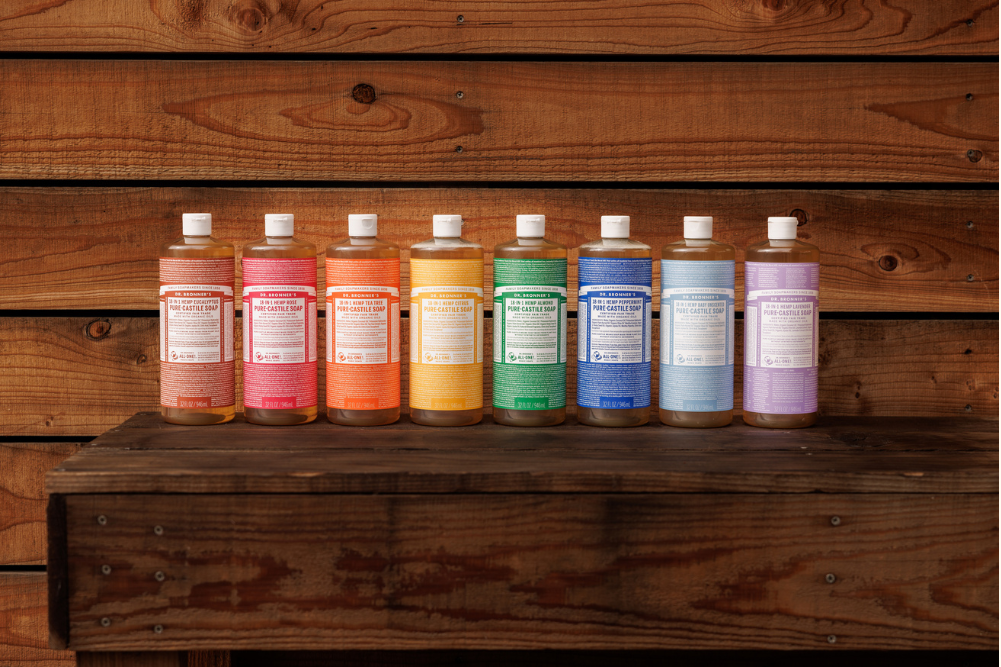In conversation with Alex Elliott-Howery
Tell us about your journey into the food world. Where did it all begin and how?
I’ve always loved food and grew up in a household that loved to cook and loved to feed people, so I guess it all started then. I’m not a trained chef, just a very enthusiastic home cook who fell hard in love with pickling when I was at home when my babies were small.
Once I discovered preserving, I couldn’t stop! I filled my entire garage with jars before we started Cornersmith, our cafe and picklehouse in Sydney. My husband James and I started Cornersmith a decade ago to see if we could bring sustainability into the hospitality industry in the city.
I’m interested in food that brings people together, that starts conversations to build community and to make environmental change. I see kitchens as a place for activism — a delicious way to do our part for the climate crisis.
What are your three waste hack tips?
Buy less food, use everything you bought and learn how food likes to be stored. This will help stop food going into the bin and save you a tonne of money.
How old is too old when it comes to the veggies at the back of the fridge?
That question really depends on your personality. There is nothing wrong with wrinkled, nothing wrong with tired, nothing wrong with deflated or ugly produce. My biggest tip is to use your common sense and your senses. Look, smell, listen and taste before you throw food away. Remember our great-grandparents didn’t have use-by dates. Instead, they used their instinct.
What has been the most memorable moment for you throughout your journey with food?
I will never forget the day Jamiee Edwards and I decided to teach ourselves how to bottle tomatoes so we didn’t have to buy tinned tomatoes or average-tasting winter tomatoes. With zero preserving experience, we went to the markets in overalls and red lipstick and bought 100 kilograms of tomatoes. You can only imagine the shitshow that followed. However, we did it! And we made enough tinned tomatoes for two families to get through a year. It was a nightmare, but it was also a lightbulb moment. We now teach annual classes in the craft so you don’t have to make the insane decisions we made. You can hear the full story on our podcast The Food Savers with Alex and Jaimee.
What is one thing in your kitchen you can’t live without?
Oh, tough call. Jaimee is obsessed with tongs. She tells me daily that’s it’s the only utensil you need in the kitchen. We call her Jaimee Tong Hands, like Edward Scissorhands. I think I use my food processor more than the average person. It’s so great to whizz up old herbs to make green sauces, tired greens can be turned into green soups, old tomatoes can be blitzed and frozen for later and ginger can be blitzed with salt and vinegar and stored in the fridge for a really long time.
What are you enjoying eating, cooking, and experimenting with at the moment?
To be honest, it’s the end of the year and I’m enjoying eating anything that someone else cooks for me. But it is asparagus season so I’m eating asparagus daily. It’s so yummy grilled, steamed, in an omelette, a stir-fry or pickled. I’m also loving turning apple scraps into vinegar. It’s so easy. You’ll find the recipe in our latest book, The Food Saver’s A-Z. My kids are in an apple crumble phase so there are lots of cores hanging around.
How do you think food can play a role in shaping a better future for us all?
Food is a very powerful medium; it’s a way to start conversations, to share stories and knowledge. It’s a way to talk about the environment, about inequality and politics. Food can just be dinner or it can be much much more.
Jaimee and I have learnt so much from resourceful cooks in history — cooks who had to deal with rations, war-time cooks or peasant cooks who didn’t have access to many ingredients. We’re in our own tricky times right now and having some simple skills up your sleeve helps you to feel more self-reliant and less wasteful. Cooking doesn’t need to be fancy or expensive or take long, but it is the answer if you’re looking for ways to be more sustainable at home.








